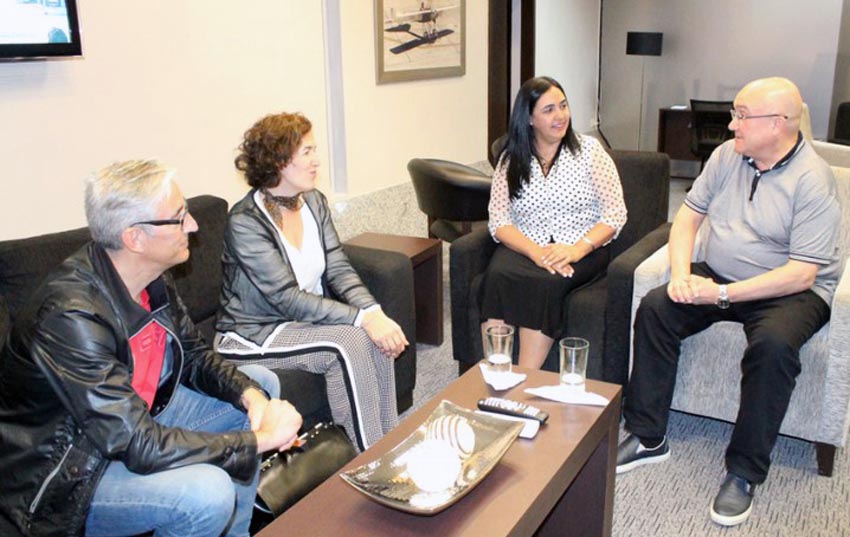Asuncion, Paraguay. The agreement of collaboration will be signed on Tuesday in Asuncion between the Secretary of Linguistic Policy (SPL) and a delegation from the Basque Governed led by Patxi Baztarrika, vice-minister of Linguistic Policy. “It is an attempt to transfer knowledge on the part of the Basque Government after three decades of the revitalization process of Euskera in the Autonomous Basque Community,” Baztarrika said.
Besides the Basque representation that also includes Joseba Lozano, director of Linguistic Normalization in Public Administration and Sara Pagola, delegate of the Basque Government in Argentina-Mercosur, seeks to nourish the linguistic reality of Guaraní, native language, and official in Paraguay along with Spanish.
According to the linguist, the Basque country has a much to contribute in processes such as those that will result from the signing of the agreement that will involve working together to strengthen the instruction of Guaraní in educational and cultural planning and programming. As well as in the training of specialists and a socio-linguistic diagnosis of the South American country.
“Web ring experience and a language that up until the 80s was in decline in the Autonomous Basque Community. At the beginning of this decade only 1 out of 5 people spoke Basque and today 37% of the population does,” he added.
Baztarrika added the investment that this curve achieved thanks to the work in literacy, so that every year some 32,000 adults enroll in the 103 learning centers, approved by the Basque Government, to learn this language, of which 1,300 work as Basque teachers.
“We come to convey this, a task that continued for 30 years, “said Baztarrika, who also highlighted the push that Euskera was also given in the media, public administration and new technologies, even though he recognizes that “there is still a long road ahead before our goal of achieving a bilingual society happens.”
“What we do know is revitalizing a language requires the will of citizens as well as the support of politicians,” Baztarrika added.
Today’s agreement will constitute a regulation to establish mechanism of assistance and support from the Basque Country for the planning and execution of the points agreed upon, according to the Secretary of Linguistic Policy in Paraguay (SPL).
Baztarrika also added that the Basque Government has also signed similar agreements with departments of indigenous language with the governments of Colombia and Chile.
“They call us from all over the world to find out about our process,” Baztarrika said, who clarified that they have drawn much from the experiences of Quebec, Canada and the regular contact maintained with the autonomous governments in Catalonia and Galicia, both in Spain.
Part of this experience will be explained by Baztarrika at a presentation that he will give after signing the agreement of linguistic collaboration.
Afterwards, the delegation will be greeted at the National Congress of Paraguay in the historic center of Asuncion.
It is estimated that 90% of the population of Paraguay is bilingual Spanish and Guaraní and nearly 57% only communicate in this pre-Columbian language, according to the last census taken in 1992.
Guaraní was also present, but in smaller concentrations than in Paraguay in parts of Bolivia, Brazil and Argentina.
(Originally published in Sudamérica Hoy)
A synopsis of this news in Guaraní
Og̃uahẽ Paraguáipe mbohapy mburuvicha oúva Vasco retãgui, oykekoségui Paraguái Ñe’ẽnguéra Sãmbyhyha rembiapópe tove guarani tojeporumemeve mamo hendápe ha opa mba’erã tetãpýre, Estado ñe’ẽtee háicha; upéichante avei, oipytyvõta Paraguáipe tove toñeñangareko hekópe opa guarani poruhára deréhco lingüístico rehe.






 Send to a friend
Send to a friend Add comment
Add comment








